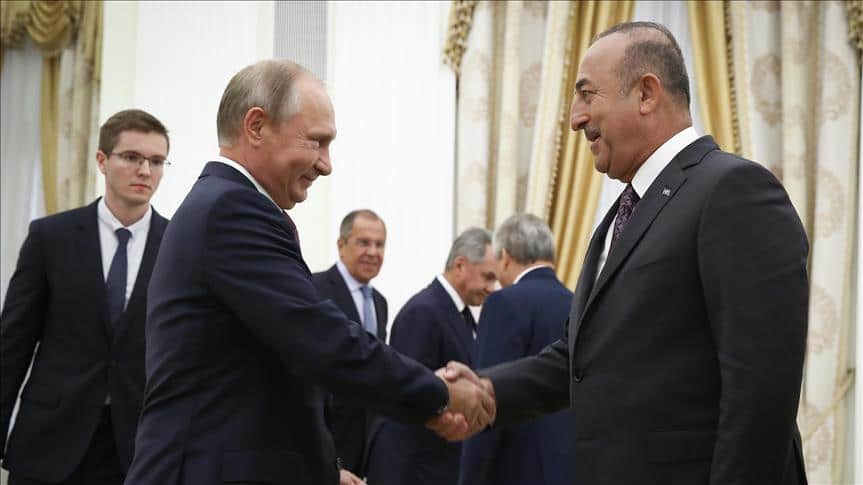For the second time time month, Turkey has told Russia that there should be no pro-Assad assault to reoccupy Syria’s last major opposition area — Idlib, northern Hama, and western Aleppo Province in the northwest.
Sitting alongside Russian counterpart Sergey Lavrov in Moscow on Friday, Foreign Minister Mevlüt Çavuşoğlu warned:
Preserving the de-escalation zone in Idlib, Syria is important in both humanitarian respects and the fight against terrorism.
A military solution there would be a disaster. It would be a disaster not only for the Idlib region, but also for the future of Syria.
Çavuşoğlu pointed to the displacement of more Syrians as a key factor in Turkish thinking. A Turkish intelligence report projected that at least 250,000 would move to the area near the border.
Turkey already has more than 3 million registered Syria refugees. Ankara sealed the border in 2016.
Çavuşoğlu, who met Russian President Vladimir Putin later in the day, asked:
Where will some 3.5 million civilians go to?
It is important for all of us to neutralize these radical groups. But we have to distinguish the civilians from the terrorist groups.
The Turkish military, which intervened in August 2016, is alongside rebels in the area. It has constructed a ring of 12 observation posts, and said earlier this month that anti-aircraft weapons are being moved to the posts to deter Russian and regime bombing.
See Syria Daily, August 15: Russia Presses for Pro-Assad Offensive on Idlib, Turkey Says No (For Now)
As in his earlier meeting with Çavuşoğlu less than two weeks ago, Lavrov tried to establish the cause for violation of the “de-escalation zone” — proclaimed by Russia, Turkey, and Iran last year — by arguing that “terrorists” must be wiped out. He proclaimed that “tens of thousands” are obstructing Turkey’s efforts to separate them from other rebel factions.
In a nod to Turkish concerns, Lavrov said the “disengaging” of the opposition from the jihadist bloc Hay’at Tahrir al-Sham should be carried out with “minimal risks” for civilians. He said Putin and Turkish President Recep Tayyip Erdoğan will soon discuss this issue,
Turkey’s Defense Minister Hulusi Akar and intelligence chief Hakan Fidan have accompanied Çavuşoğlu in the visit to Moscow, meeting Russian counterparts.


meanwhile, Russia moved naval assets into position to participate. Not long now until Erdydog is humiliated by the Ruskies. Payback for shooting down that Jet